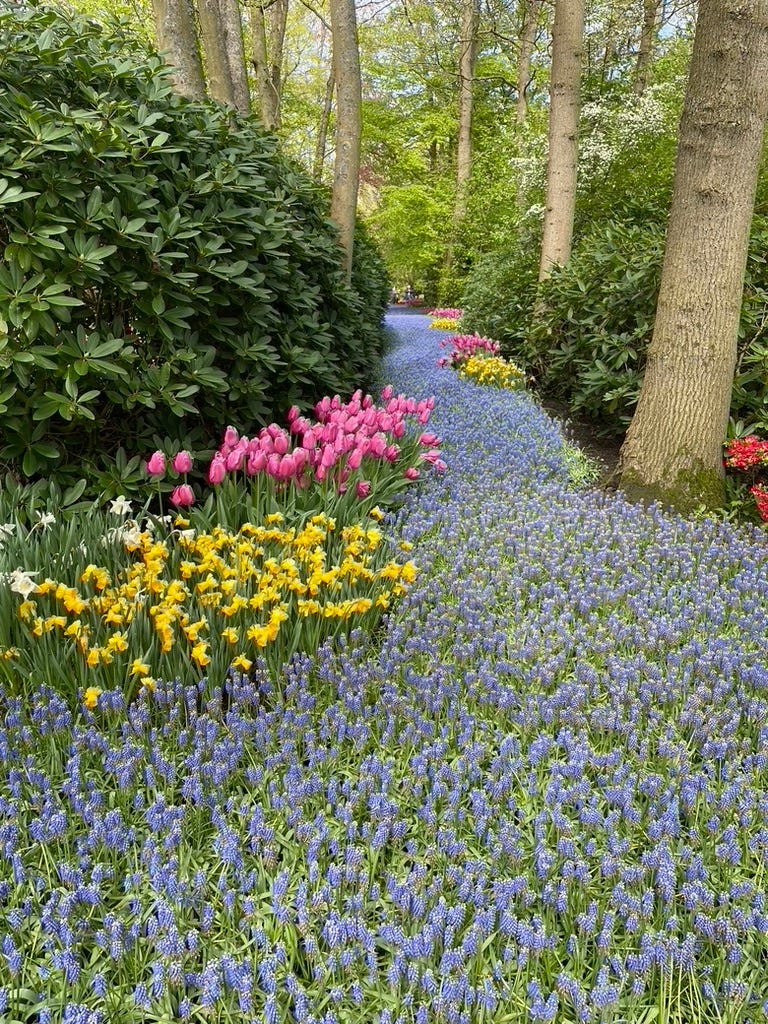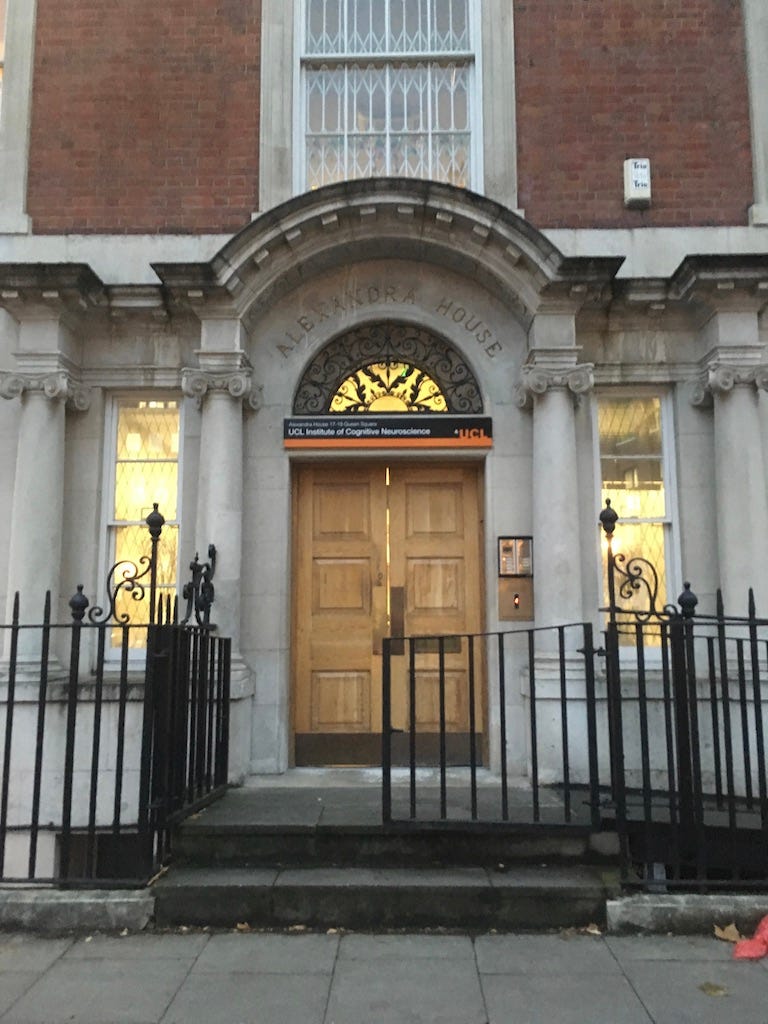Picture taken from my recent visit to Keukenhof - Holland
My 56th Spring What did l bring to my 56th Spring? Uncomfortable myths that maybe or maybe not be true But how cosy they feel Like my old sweater l go to Weathered & Worn But not for this my 56th Spring Now aging with grace and humility l choose the spring light to illuminate my experiences Reflecting back those truths that had long been forgotten Aiding my rebirth and settling in with who l've always been Shining a light on a new way of being In a different place now, light pumping through my veins Now emerging with nature and intuition blossoming Finding tranquility, respect and harmony with all that is I am more grateful than l've ever been, for this is my 56th Spring salemaveliu©2024
Hello friends,
I’m talking to you today about the lessons from cycles and patterns that nature can reflect back to us, if we can just become a little more receptive and aware.
For me, when l think of what Nature can show us l think of Hindu mythology in particular the Hindu Trilogy - Brahama, (the before, how things came to be), Vishnu (the now, everything up to this point), and Shiva death and destruction of the old to make way for the future.
Interacting with nature encourages and invites us to witness and acknowledge our mental, physical, spiritual and emotional patterns. I cannot think of anything more appropriate that mirrors than the seasons themselves.
For example, how often with the changing of a season particular Spring, do you stop and pause to review where you were this time last Spring?
Some Prompts & Enquiries
What has changed in you?
What has changed in your exterior landscape?
Seasons and nature are given the greatest respect in Japan, with Shinto shrines taking great importance. A place where one can go and show respect. We know that showing gratitude and/or having a practice of gratitude can not only change your brain chemistry, but can also affect your attitude in how you move through your day, your interactions as well as chores.
During my time studying Experimental Cognitive Psychology at Cambridge and attending lectures at the UCL Institute of Cognitive Neuroscience. I came across some interesting studies on how having a greater appreciation for life can help boost self-confidence and self-esteem. Writing in the process about how by combining eastern philosophies and practices with western science, could help equip us with a different bag of tools to learn and cultivate a greater appreciation of life and self-worth?
In exploring some of the other mechanisms and the brain areas that could be involved through self-reported and experimental behavioural findings. I began to see how some of these eastern practices and philosophies may be helpful. For example, some of these mechanisms are; Emotion regulation: reappraisal (Dorsal) Prefrontal Cortex (PFC) approaching ongoing emotional reactions in a different way (not judgementally, with acceptance). Emotion regulation: exposure, extinction, and reconsolidating exposing oneself to whatever is present in the field of awareness; letting oneself be affected by it; refraining from internal reactivity. Associated brain areas Ventromedial PFC, Hippocampus, Amygdala. Change in perspective on the self: detachment from identification with a static sense of self. Associated brain areas Medial PFC, Posterior Cingulate Cortex, Insula but to name a few.
"Self-esteem increases when others appreciate and value us, and decreases when are rejected (social inclusion) and start to question our own worth and abilities. Self-Esteem is an essential ingredient in promoting good mental health and well-being. A lack of it has the potential to develop a vulnerability to a range of psychiatric problems including eating disorders, addictions and depression."
An extract is taken from Will, G. J., Rutledge, R. B., Moutoussis, M., & Dolan, R. J. (2017).
Prompts & Enquiries
Could adding the ingredient of gratitude as well as our ability to connect with nature increase our levels of Vitamin D, Dopamine and Serotonin? Could allowing ourselves to bathe in the increasing hours of light (safely), starting in Spring also give a boost to and begin to help us regulate our self-esteem?
Can natural regulation perhaps contribute in cultivating a healthy relationship with ACCEPTANCE. Acceptance of how things have been, how they are now, and moreover accepting a degree of detachment about the future?
I want to leave you one more enquiry to ponder on as l feel it sums up and reflects my poem l read at the very beginning of this piece.
Does gratitude, respect, harmony, and acceptance become easier and clearer to understand as we age?
Until next time remember Live Well, Mean Well, Be Well















Share this post